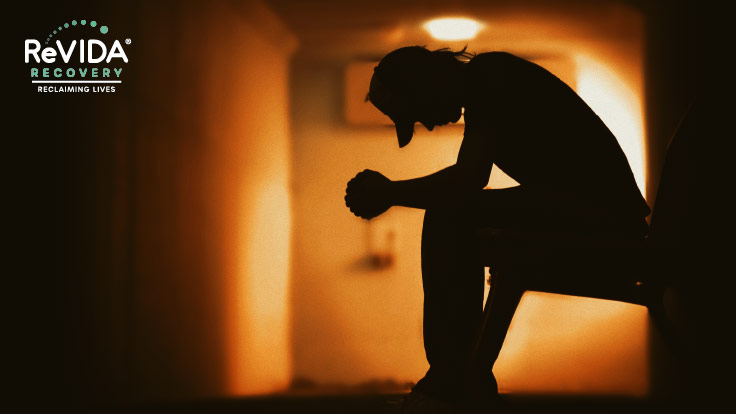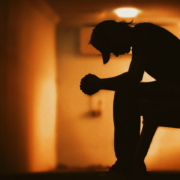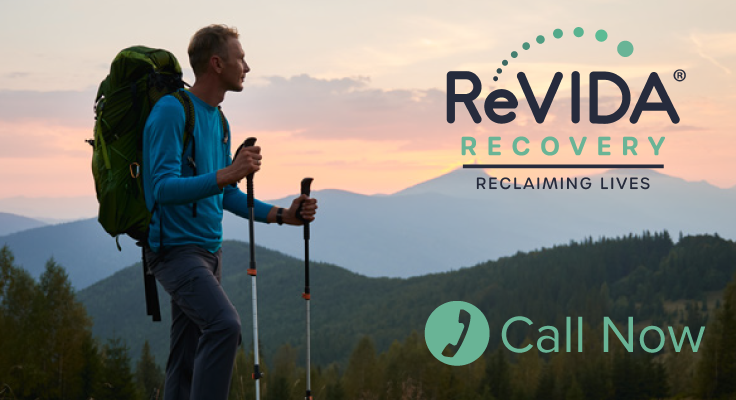
Are you (or is someone you love) involved in heroin use? Are you trying to figure out if someone you love has an addiction to heroin, and you want to know what heroin looks like? Are you hearing strange language coming from your child, and you’re trying to understand if they’re talking about drugs?
All of these questions (and more) are reasons why you might want to understand heroin a little better. If someone you love is utilizing heroin street names or slang, it could be a strong indicator that they’re regularly taking the substance. At ReVIDA® Recovery, we want you to know what to listen for so you can be armed with the knowledge you need to help someone you love.
Over the years, there has been an increase in the number of people who use substances illegally in Appalachia. There has also been an increase in the number of substance-related deaths. We want to make sure our communities are aware of what heroin is and how it impacts everyone it touches. Heroin slang has evolved and changed over the years, but it’s still prevalent in today’s culture. Let’s talk about heroin street names and what you can do if you hear them being used.
Table of Contents
What is Heroin?
Heroin is an illegal opioid that elicits feelings of well-being, euphoria, and painlessness in those who take it. Its illegal status means it isn’t something you’ll get from a prescription or a doctor, which is why it’s made in illegal labs.
Heroin is made from morphine, a legal opioid that’s often prescribed for intense or post-surgical pain. Morphine comes from the seed pods of poppy plants. Opioids attach to the body’s opioid receptors, which are located all over the body. These receptors influence feelings of pain, pleasure, sleeping, breathing, and even heart rate. This is why the people who take them get pain relief, and it’s why it’s often prescribed in these cases. Unfortunately, it’s also part of the reason why some people form a dependence on it.
Heroin is used for a variety of reasons. Some people started taking a prescription opioid and didn’t want to/couldn’t stop once their script ran out, so they decided to purchase it illegally. The same can be said for teens who find opioids in their parent’s medicine cabinets or through friends. Prescription opioids are often more expensive to buy illegally, and they’re not as easy to come by. Heroin is readily available and a slightly less expensive option. Other people may take heroin because of their circumstances – it may be that family members, friends, or co-workers use it and they find it that way.
No matter how each individual came to find heroin, the end result is usually the same: addiction or dependence. Heroin isn’t just psychologically addictive – that’s a large and popular misconception. It can be physically addictive, and people can become dependent on it whether they mean to or not. Opioids like heroin alter the way the brain functions, including its reward pathways. Chronic or regular use of heroin can change what the brain and body need. Tolerance builds and people think they need more of the drug just to feel “normal”.
Depending on where someone lives, finding and buying heroin can be a simple act. 15.2 % of people ages 12 and up claim that they’d be able to find it if needed. In other words, this is a very popular substance. Because of this, it has earned many “street names” or “slang” terms. If this slang is being used, it could be a sign of heroin addiction.
Heroin Street Names or Slang
Slang is usually coined for one of two reasons: it’s either found in popular culture (music, books, poetry) or it’s created on the street. People who use slang are often doing so to avoid any legal ramifications of taking this substance. They may use slang as a sort of “code” so they can discuss the drug without anyone else knowing what they’re talking about. Heroin comes in multiple forms, and two of those popular forms are “black tar” and a white powder. The street names usually give an indication of the form of heroin that’s being referred to. For example, some popular street names/slang for white powdered heroin include:
- Snowball
- White boy
- White stuff
- Sugar
- China white
- White horse
- White lady
- White nurse
Some popular street names/slang for black tar heroin include:
- Black olives
- Black goat
- Cement
- Mexican mud
- Sheep
- Sticky kind
- Tootsie roll
- Diesel
How to Recognize Heroin
Heroin comes in a few forms, and it isn’t always easy to recognize. Its most popular form, a white powder, can be mistaken for something like laundry detergent or even cocaine (which also comes in a white powder). Heroin is also often mixed with things like sugar or baking soda, so most of the time, you wouldn’t be able to smell it for identification purposes (and please, don’t try – sniffing heroin is not a safe idea!). Sometimes dealers will add other unknown ingredients to powdered heroin, and it can look brown.
Heroin also comes in the form of a sticky, black substance – often referred to as black tar heroin. Both white and black tar heroin are often stored in small plastic baggies so they’re easy to hide.
Street Names for Heroin Mixed with Other Drugs
Dealers will often mix drugs like fentanyl into heroin because it creates a more intense “effect” for less money. This becomes dangerous. When any other drug is added to heroin, or vice versa, the risk of heroin overdose increases exponentially. Still, many will buy heroin laced with other drugs, and they have slang terms for this, too. Some of these terms include:
- Dynamite
- Primo
- H&C
- Goofball
- Speedball
- A-bomb
- H-bomb
- Neon Nod
- Cheese
- Chocolate chip cookie
Getting Help for a Heroin Addiction
At ReVIDA® Recovery, we have seen firsthand how effective, evidence-based heroin addiction treatment can be in eliminating opioid use disorder (OUD). It doesn’t matter how long you’ve been taking heroin or how impossible it feels to stop right now – recovery is always possible. Let’s talk about some of the treatment options we offer here that could be right for you or your loved one.
Medication-Assisted Treatment (MAT)
While you’re here for MAT, you’ll be closely monitored by a compassionate and knowledgeable staff. Medications are available that can help in alleviating heroin withdrawal symptoms or heroin side effects and guiding you safely into recovery. You’ll also have access to resources that can help you on your journey moving forward, including individual counseling, group counseling, and support groups. In an MAT program, we use medications alongside traditional therapy to guide you away from opioids and into a healthy life of recovery.
You’ll also have the option to move forward with our outpatient treatment program. If a higher level of care is warranted, we will provide referrals for a local inpatient or residential treatment program. Your clinician will go over all of your options to set you up for success.
Buprenorphine (Suboxone®) Treatment
Medication-assisted treatment, or MAT, is a safe and evidence-based way to treat OUD. At ReVIDA® Recovery, we support the use of buprenorphine (Suboxone®) because it has been proven to reduce cravings while working to prevent relapse. To receive buprenorphine (Suboxone®) treatment, you will have to be opioid-free for 24 hours.
Outpatient Rehab Services
We believe that both individual and group therapy are critical components in the treatment of OUD – especially if you’re looking for long-term recovery. This is a safe and supportive space where you will learn how to manage your triggers and create healthy coping mechanisms. Our behavioral healthcare team is composed of licensed therapists, certified counselors, care coordinators, and peer recovery specialists who are standing by and ready to help. If we can treat your addiction where it started, at its roots, your chance of recovery is greater than if we were to simply treat your withdrawal symptoms.
At ReVIDA® Recovery, we’re standing by to help you reclaim your life from heroin. Recovery is possible, and you can start your journey to wellness whenever you’re ready. To learn more or to schedule an appointment, please call us today at 423-631-0432.









